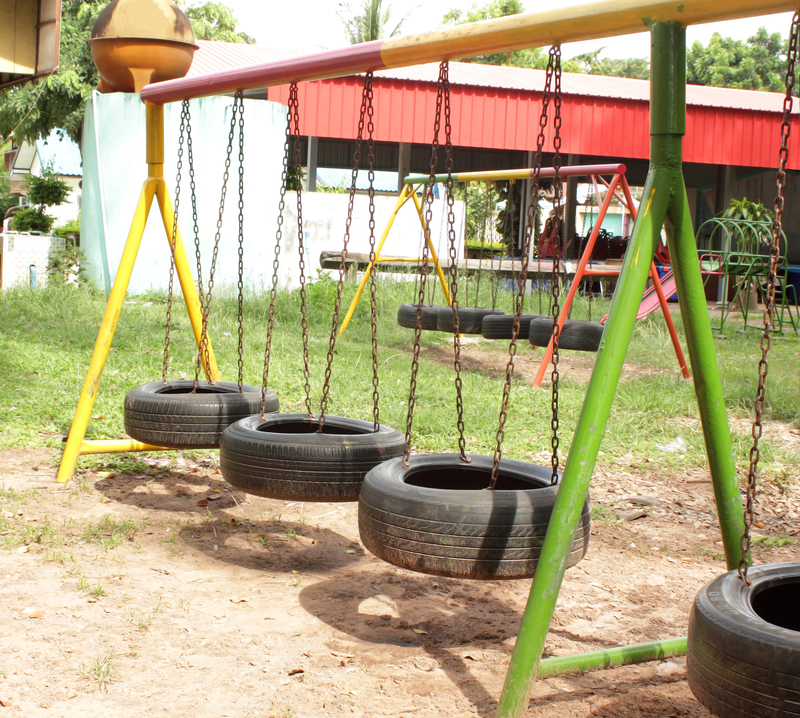Optimize Resources with Strategic Waste Collection Services
In an era where sustainability is no longer a choice but a necessity, businesses and municipalities are increasingly turning to strategic waste collection services to optimize their resources. These services not only help in managing waste efficiently but also contribute to environmental conservation and economic savings. Let's explore how optimizing resources with smart waste management strategies can be a game-changer for multiple sectors.
Understanding Strategic Waste Collection
At its core, strategic waste collection involves deploying a planned approach to manage and dispose of waste materials in a manner that is both efficient and environmentally friendly. It encompasses a variety of techniques and technologies aimed at reducing waste production, improving waste transport efficiency, and maximizing resource utilization.
The Importance of Waste Management Strategies
Effective waste management is crucial for several reasons:
- Environmental Benefits: Proper waste management reduces pollution, conserves natural resources, and minimizes landfill accumulation, leading to a healthier planet.
- Economic Savings: By optimizing waste collection routes and reducing waste volumes, organizations can save significantly on disposal costs.
- Regulatory Compliance: Adhering to waste management regulations helps avoid penalties and enhances the brand image.
- Social Responsibility: Demonstrating a commitment to sustainability can improve customer and employee loyalty.

Key Components of Strategic Waste Collection Services
Optimizing waste resources involves a combination of technology, planning, and innovative practices. Here are the primary components that make these services effective:
1. Advanced Collection Techniques
Implementing advanced collection techniques, such as automated waste collection systems and smart bins, can significantly improve efficiency. These systems often leverage sensor technologies to monitor bin levels in real-time, helping schedule collections only when necessary, thereby reducing fuel consumption and emissions.
2. Route Optimization
Route optimization involves using software tools to plan the most efficient routes for waste collection vehicles. This not only saves time and reduces fuel costs but also ensures timely waste pickup service. Advanced analytics help in avoiding routes affected by traffic congestion or road closures.
3. Waste Segregation and Recycling
Strategic waste services emphasize segregation at the source, ensuring that recyclable materials are separated from general waste. Recycling not only reduces landfill pressure but also allows materials to be reprocessed and reused, contributing to resource optimization.
4. Waste Audits
Conducting regular waste audits helps organizations understand the types and quantities of waste they produce. This data-driven approach allows for more accurate strategy planning and implementation tailored to specific needs, ensuring optimal resource utilization.
Benefits of Implementing Strategic Waste Collection
Organizations incorporating waste management strategies into their operations can expect a myriad of benefits:
Improved Operational Efficiency
By optimizing collection routes and schedules, businesses can achieve higher levels of operational efficiency, freeing up valuable resources for other critical tasks.
Cost Reduction
Efficient waste collection minimizes the number of trips required, leading to lower transportation and labor costs. Furthermore, recycling can generate revenue streams, adding to cost savings.
Enhanced Sustainability Goals
With strategic waste collection services, organizations can align with global sustainability goals, contributing to a reduction in carbon footprint and conservation of resources.
Better Community Relations
Businesses that engage in environmentally friendly practices are often viewed more favorably by the community, enhancing their brand's reputation and customer base.

Implementing Strategic Waste Collection in Your Organization
While the advantages are clear, successfully integrating waste strategies requires careful planning and execution. Here's how to begin:
Assess Current Waste Management Practices
Start by evaluating your current waste management practices. Identify areas for improvement and potential technological integrations that can enhance efficiency.
Partner with Reputable Waste Management Services
Collaborate with experienced service providers who offer tailor-made waste collection solutions designed to meet your specific needs, ensuring compliance with environmental regulations.
Leverage Technology
Adopt technologies such as data analytics and IoT devices to gain insights into waste patterns, optimize routes, and automate processes.
Educate and Involve Stakeholders
Ensure that all employees and stakeholders understand the importance of waste management strategies. Encourage their involvement to foster a culture of sustainability within the organization.
Conclusion: The Future of Waste Management
As environmental concerns continue to rise, the importance of innovative waste collection strategies cannot be overstated. By optimizing how we collect and manage waste, we can conserve resources, reduce environmental impact, and drive economic efficiencies. Adopting strategic waste collection services not only guarantees regulatory compliance but also positions organizations as leaders in sustainability. The future of waste management lies in the seamless integration of technology, strategy, and human action to create a cleaner, more sustainable world.